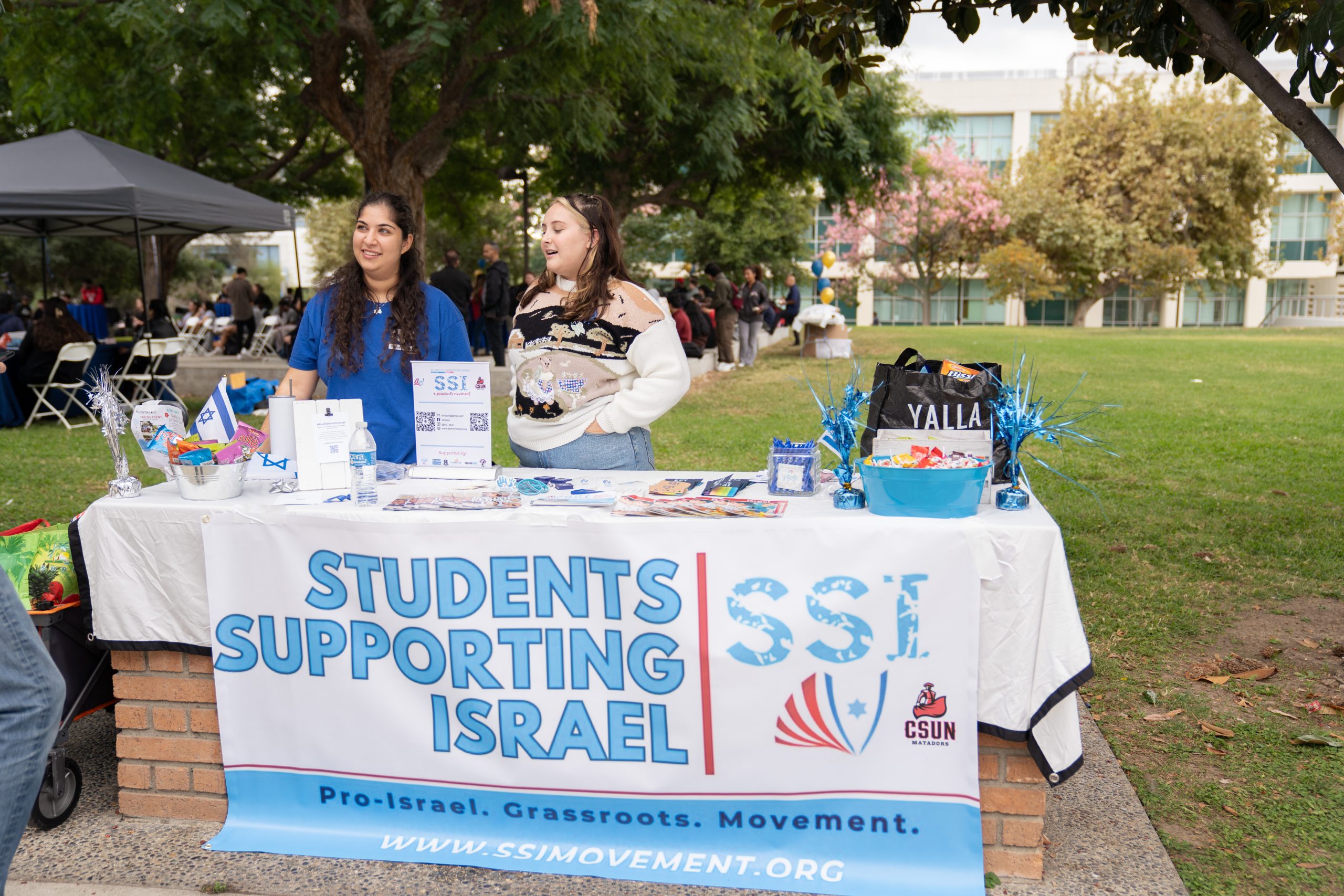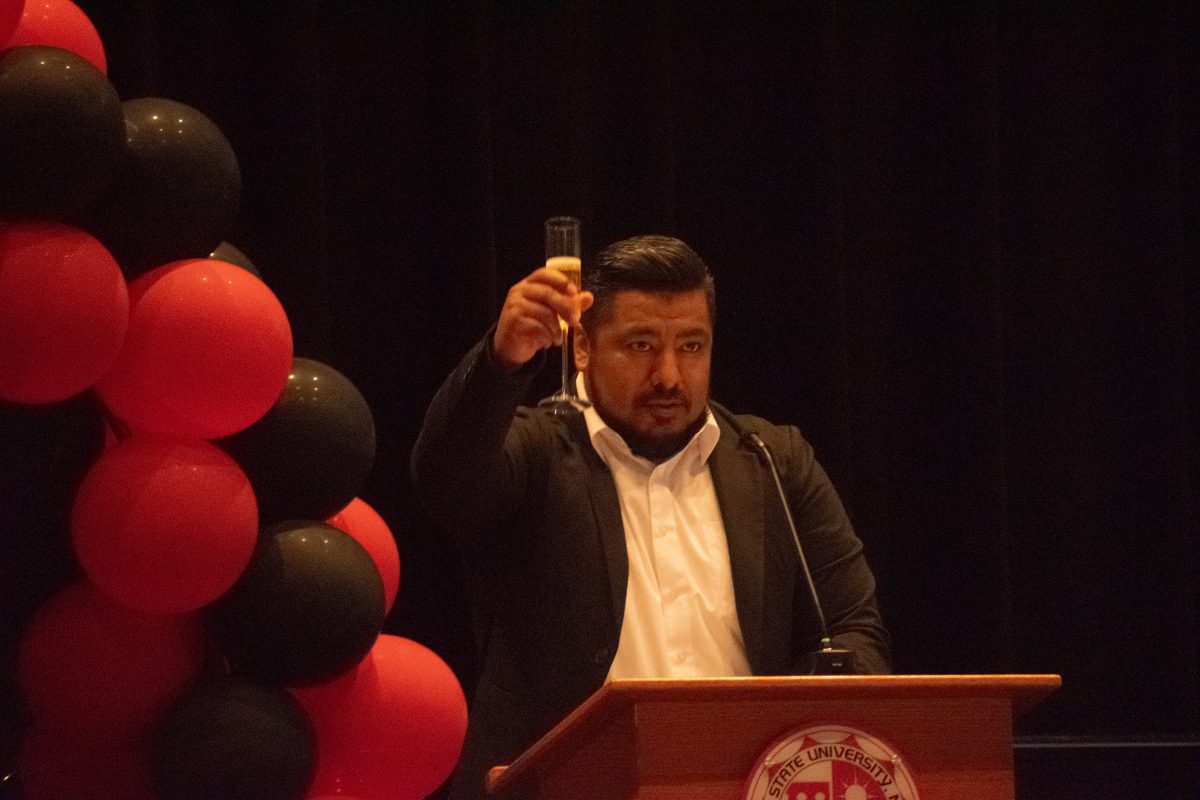CSUN’s Students Supporting Israel chapter held a supply drive on campus for Israeli soldiers on Oct. 25.
The SSI is a self-referred Zionist movement on campus that shows support for the state of Israel. According to their website, the goal of the movement is to familiarize students with current events in the Middle East and to promote Zionism on campus. The group shows support for the belief that Jewish people have the right “to be masters of their own fate, like all other nations, in their own sovereign state… a Jewish state.”
Since the outset of the latest Israeli-Hamas conflict, pro-Israel organizations on campus have been gathering to show their support. One event was a vigil held on Oct. 11, and now students are showing their support in the form of gathering aid and supplies to be delivered to Israel through an Israeli donation center in Los Angeles. SSI wants to keep the name of the donation center private for security reasons.
The event was set up on a table on Cleary Walk, near the Matador Statue. Students brought Israeli flags, an SSI banner, informational pamphlets and other organization related material.
President of CSUN SSI Sharon Shashoua said the event was not only for Israeli soldiers but also civilians who are in need of necessities such as hygiene products and clothes.
“I just think that with this whole situation that we’re prepared enough,” Shashoua said. “This whole attack and this whole war took us by surprise.”
Shashoua says that the supplies are essential given the amount of reservists who have been drafted.
300,000 reservists were drafted on Oct. 10, according to Israeli Defense Force spokesperson Daniel Hagari, so CSUN SSI hopes to help these reservists and also civilians. There has also been criticism of the Israeli government from Israelis for its lack of organization and reliance on grassroots organizations to provide supplies for mandatory and reserve soldiers.
While the SSI students were at their table, a Palestinian student approached them to express his disagreements with the group. He expressed that Israel is an occupier state and probed the SSI students with questions surrounding the conflict, and the SSI students tried to understand where he was coming from.
He had seven family members who were killed in Gaza and did not want his name or photograph to be shown.
“I don’t have anything to prove that I’m Palestinian,” he said.
CSUN student Ronit Chavol was also at the supply drive in support of Israel. She said she has cousins who enlisted as reservists following the start of the war. Chavol said she keeps in contact with them using WhatsApp and receives updates from her cousins’ parents.
There have also been conversations of whether or not Israel’s response has been proportionate following Hamas’ attack on Oct. 7. Chavol said this attack was a declaration of war, and that war is not pretty.
“Israeli soldiers try to minimize deaths as much as they can. They are targeting the terrorist organization Hamas. Unfortunately, Hamas is hiding behind the civilians,” Chavol said.
According to a report by the United Nations, the death toll in Gaza has reached 8,525 with 21,543 injured. Women and children make up 60-70% of the deaths in Gaza, according to Gaza’s Ministry of Health. Israeli deaths have amounted to 1,400, with 5,431 injured – most of which were in the attacks by Hamas on Oct. 7. About 212 Israeli and foreign nationals are being held captive.
Chavol also said there are antisemitic buzzwords being used in the current discourse of the Israeli-Palestinian war. This includes “genocide, colonization and apartheid.”
Groups such as Students for Justice in Palestine and other pro-Palestinian groups have used these words to describe the conditions that Palestinians are living under in Gaza and the West Bank.
In the end, Shashoua emphasized the importance of gathering one’s own information and listening to both sides.
“I just think it’s important for people to get educated. It can be very hard when you have people from one side or the other,” Shashoua said. “I just think it’s important for people to get their own information from reliable sources, do the searching for themselves and listen to both sides.”
Correction: This article has been edited since publication for clarity.






